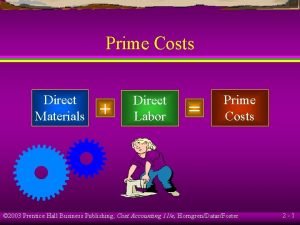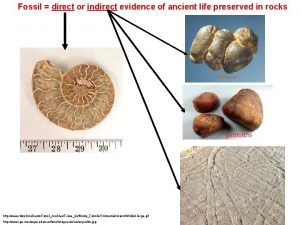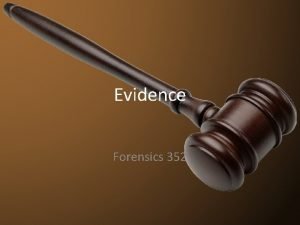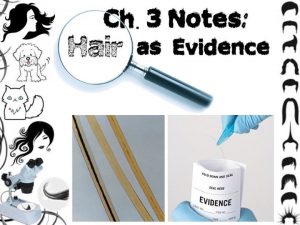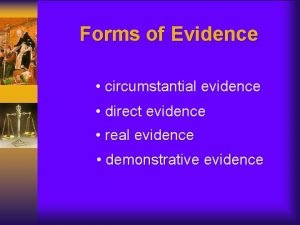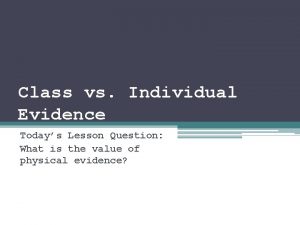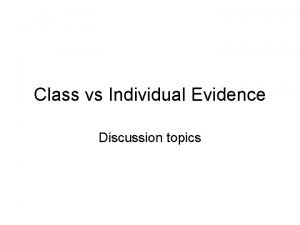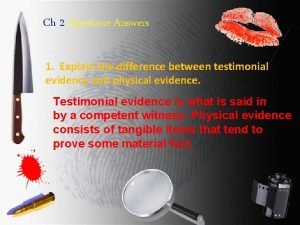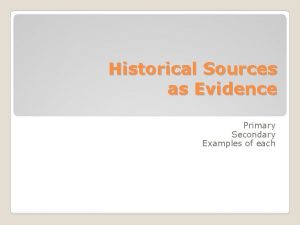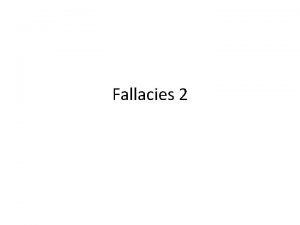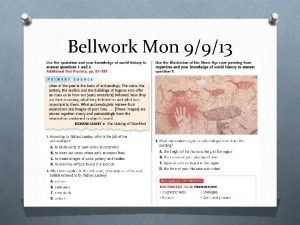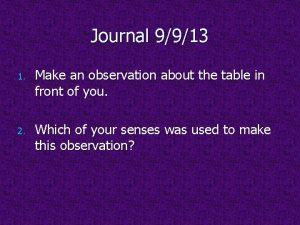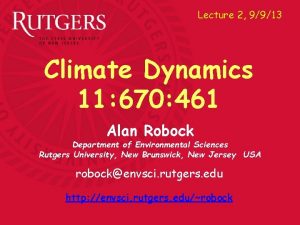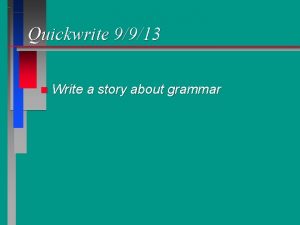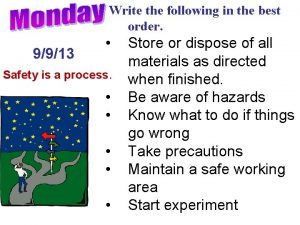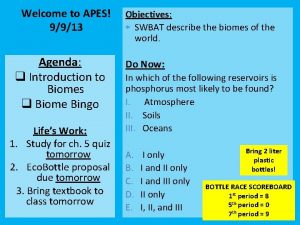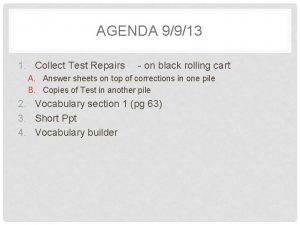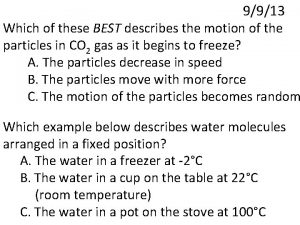Evidence 9913 Evidence What is it Direct evidence















- Slides: 15

Evidence 9/9/13

Evidence: What is it? • Direct evidence in the form of a statement made under oath-also known as testimonial evidence. • Physical evidence-any object or material that is relevant in a crime scene. Locard’s Principle Class vs. Individual Evidence

What is it good for? • Physical evidence 1. Prove crime has been committed 2. Corroborate testimony 3. Link suspect to victim or crime scene 4. Establish identity of persons associated with crime 5. All reconstruction of crime

Individual • Individualized to a single, specific source • No doubt as to what the source is fingerprint DNA Handwriting Voiceprints • Always involves a comparison-an exemplar

Class Evidence • Consistent with a particular source • The more class evidence that fit the criminalthe better Hair Fibers Soil Glass fragments

Movie Analysis • Name of show • Title of episode • Date aired: at least 5 Evidence Time: Start Middle End Evidence viewed How was evidence analyzed

Scientific Evidence • Daubert Ruling Daubert vs. Merrill Dow Pharmaceuticals -applies to federal courts & some states. -judge determines admissibility • Guidelines for Judge 1. Scientific theory or technique must be testable 2. Must be subject to peer review and publication

Scientific Evidence 3. Rate of error must be stated. 4. Technique must follow standards. 5. Consideration as to whethere is widespread acceptance in scientific community.

Common Acronyms in Forensic Science • AAFS-American Academy of Forensic Scientists • DNA-Deoxyribonucleic Acid • RNA-Ribonucleic Acid • CODIS-Combined DNA Index System • AFIS-Automated Fingerprint Identification System • IBIS-Intergrated Ballistics Identification System

Rules of Evidence • Admissible evidence must be 1. Relevant –must prove something (probative) and address the issue of particular crime (material) 2. Reliable 3. Presenter must be credible and competent

More Acronyms • • FBI-Federal bureau of Investigation DEA-Drug Enforcement Administration ATF-(Bureau of) Alcohol, Tobacco & Firearms USPS-United States Postal Service BSPA-Bloodstain Pattern Analysis DOA-Dead on Arrival DUI-Driving Under the Influence TOD-Time of Death

More Acronyms • PMI-Post Mortem Interval • DRT-Dead Right There • B&E-Breaking & Entering

Questions 1. Who did this case favor 2. Why was the scientific procedures applied in this case not acceptable? 3. Why was the expert testimony not creditable? 4. Write a reflection about the decision of the court.

Homework p. 66 Case Reading: The Enrique Camarena Case: A Forensic Nightmare Case Analysis questions 1, 2, 3 due on Friday

rubrics • Photographs : All three modes Macro, Portrait and Landscape distance is appropriate to mode ( 5 for each, total of 15 points) Description: at least 4 description of what they see ( 5 pts), 3 ( 4 pts), 2 (2. 5 pts)
 Direct material + direct labour
Direct material + direct labour Direct vs circumstantial evidence
Direct vs circumstantial evidence Indirect fossil
Indirect fossil How do geologists study direct evidence of earth's interior
How do geologists study direct evidence of earth's interior Circumstantial evidence
Circumstantial evidence Why is hair class evidence
Why is hair class evidence Direct vs circumstantial evidence
Direct vs circumstantial evidence Secondary sources
Secondary sources Class evidence vs individual evidence
Class evidence vs individual evidence Primary evidence vs secondary evidence
Primary evidence vs secondary evidence Class vs individual evidence
Class vs individual evidence Difference between physical and testimonial evidence
Difference between physical and testimonial evidence Primary evidence vs secondary evidence
Primary evidence vs secondary evidence Primary evidence vs secondary evidence
Primary evidence vs secondary evidence Define ecological fallacy
Define ecological fallacy Primary evidence vs secondary evidence
Primary evidence vs secondary evidence
